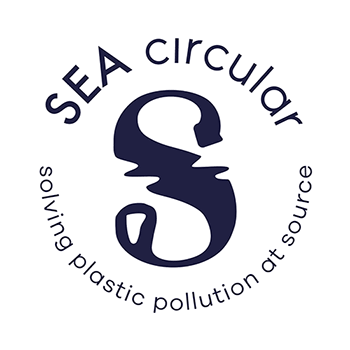
Responsible business practices, human rights and plastic pollution
A SEA Circular Training Workshop
Thursday, December 17, 2020, online (WebEx)
The United Nations Environment Programme (UNEP) and the Coordinating Body on the Seas of East Asia (COBSEA) are hosting a training on responsible business practices that align with, respect and promote the human right to a safe, clean, healthy and sustainable environment.
The training is part of project activities under the SEA circular initiative, implemented jointly by the UNEP Regional Office for Asia and the Pacific and COBSEA in South-East Asia. SEA circular aims to inspire market-based solutions and promote evidence-based planning to prevent marine plastic pollution. The project promotes a human rights-based approach to identify people-centred and equitable solutions that address the needs, rights and interests of all groups of society, including consumers, informal waste workers, children and youth and coastal communities most vulnerable to the impacts of marine litter.
This event is organized in partnership with the Office of the United Nations High Commissioner for Human Rights (OHCHR) and the United Nations Development Programme (UNDP). This event is the first in a planned series of targeted in-depth trainings and capacity building activities.
Event objectives
The webinar aims to increase awareness and understanding of responsible business practices and environmental rights related to reducing plastic leakage and pollution and serves to identify needs and interest of businesses for targeted training and capacity building in 2021. This initial dialogue will build the foundation for a better understanding of environmental rights and responsible business practices. The webinar provides an opportunity to learn, share good practices, and discuss business strategies for a greener and equitable recovery from the COVID-19 pandemic.
Learning objectives include:
- Learning: Understanding responsible business practices and environmental rights
- Sharing: Discussing good practices, challenges, key issues for responsible business practices
- Planning: Identifying knowledge gaps and meaningful engagement formats to build capacity for responsible business practices
Participants
The training is aimed at businesses, producers, retailers, and associations in the packaging, consumer, tourism and institutional products industry operating in South-East and East Asia. The target group includes, in particular, businesses that have participated in the plastic footprint reporting training under SEA circular and/or are developing or implementing plastic (waste) reduction strategies. SEA circular implementing partners and collaborative business partners are strongly encouraged to participate.
Programme:
- Welcome and introduction to the training
- Learning: understanding responsible business practices and environmental rights
- 1.1 Human rights and business accountability:
- What are human rights implications of the environmentally sound management and disposal of hazardous substances and wastes and the responsible of business ?
- Existing international frameworks, guidelines and tools
- Q&A
- 1.2 Environmental rights and business responsibility:
- What is the right to a healthy environment and why is this relevant for businesses and plastic pollution?
- Existing knowledge, tools and gaps
- What are UNEP and partners doing to build capacity?
- Q&A
- 1.3 Toward responsible business practices:
- How the UN Guiding Principles on Business and Human Rights can guide action
- National-level progress in the region
- Q&A
- 1.1 Human rights and business accountability:
- Sharing: Efforts to shift to responsible business practices
- Good practices, challenges, opportunities, key issues and gaps in the region
- Developing responsible business practices at Nestle
- …
- Discussion: how to get started, replicate, improve and scale up
- Planning: What do businesses need to build capacity on responsible businesses practices?
- Live survey of knowledge gaps, key topics, and meaningful engagement formats
- Discussion of needs and interest for follow-up training and sharing access to additional resources
- Closing and next steps
Logistics
The training is planned as a 2-hour online event. Information on how to connect will be shared with registered participants in due course.
For more information and to participate, please contact:
Events
